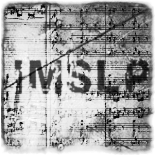In the previous article (The First Opera and the Beginning of the Baroque) we saw that the opera Euridice by Jacopo Peri was one of the first operas to be written. This opera tells us the story of Opheus and Eurydice. Orpheus descended into the kingdom of the dead to get back his beloved Eurydice. With his singing he mollified the gods of the underworld to such an extent that they could not do anything else than to give Eurydice back to Orpheus. There was, however, one condition. During the journey back, Orpheus was not allowed to look back to Eurydice, who would follow him. If he would do so, he would lose her forever. Once they were on their way, Orpheus got worried. Hearing an alarming sound from behind, he got engulfed by doubt. Was there a problem? Did he have to go back to solve it? He turned around and lost Eurydice forever.
The enormous impact Orpheus had on the deities by means of his music made this myth a recurring theme during the history of classical music. Although Peri’s Eurydice is of earlier date, the opera L’Orpheo by Claudio Monteverdi, is generally considered the first real milestone in the history of opera. L’Orpheo also tells the story of Oprheus and Eurydice. There are several versions of this work. The first, performed in 1607, has a rather inglorious ending. Opheus came across a group of furious Meneads who hated his music. Even the rocks they threw at Orpheus refused to hit him because of his beautiful music. Therefore, the Meneads tore him to pieces. In the version that appeared in print in 1609, Orpheus was luckier. The god Apollo descended from heavens and took Orpheus in a cloud with him into the realm of the gods, from where he was able to see Eurydice. We do not know the reason for this adaptation. Perhaps the version with the happy end was better suited for a larger audience.
Monteverdi’s L’Orfeo shows a considerable variety of musical forms. The opera starts with an instrumental toccata (mp3 – source) played by the orchestra. During the entire opera the orchestra continues to play an important role. There are many ritornellos, short instrumental passages: (mp3 – source).
Of course, Orpheus himself has a prominent part. He sings about his love for Eurydice: (mp3 – source). The choir of nymphs and shepherds shares in Orpheus’ joy: (mp3 – source). But then a messenger appears with the bad news of Eurydice’s death: “Your beloved Eurydice, your bride… is dead” (mp3 – source). The air in which Orpheus attempts to gain access to Charon’s kingdom of the dead is one of the most famous passages in the opera: “Possente spirito e formidabil nume…” (mp3 – source).
It is not possible to review the entire opera in this article, but these examples might give you an impression of Monteverdi’s way of composing music to this story. It is highly recommended to take some time to listen or watch this first masterpiece in the history of opera.
Recommended cd’s en dvd’s
Details: Amazon.com
Sheet Music
The complete score of this opera can be donwloaded free of charge from the Choral Public Domain Library: Monteverdi – L’Orfeo.




